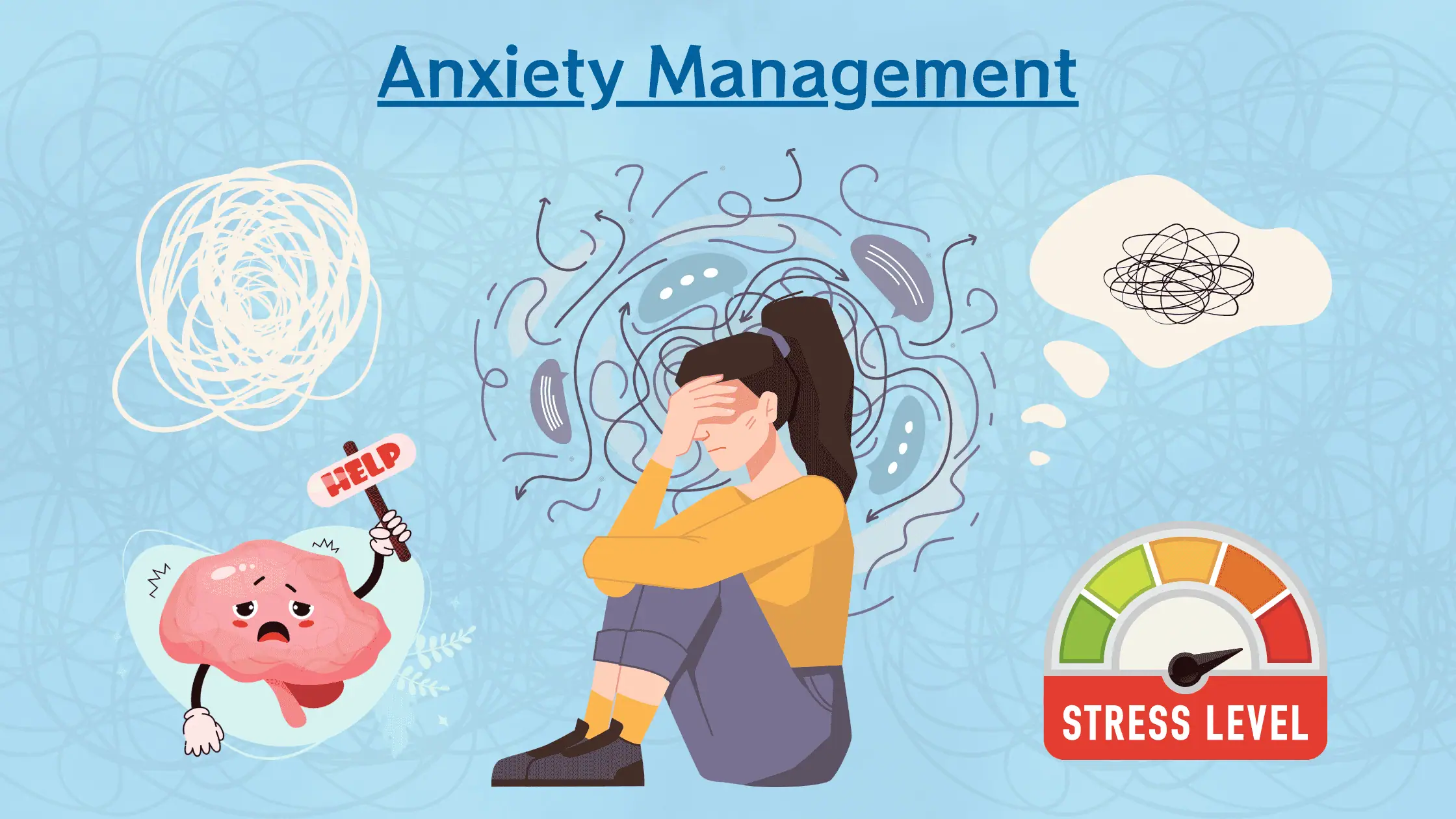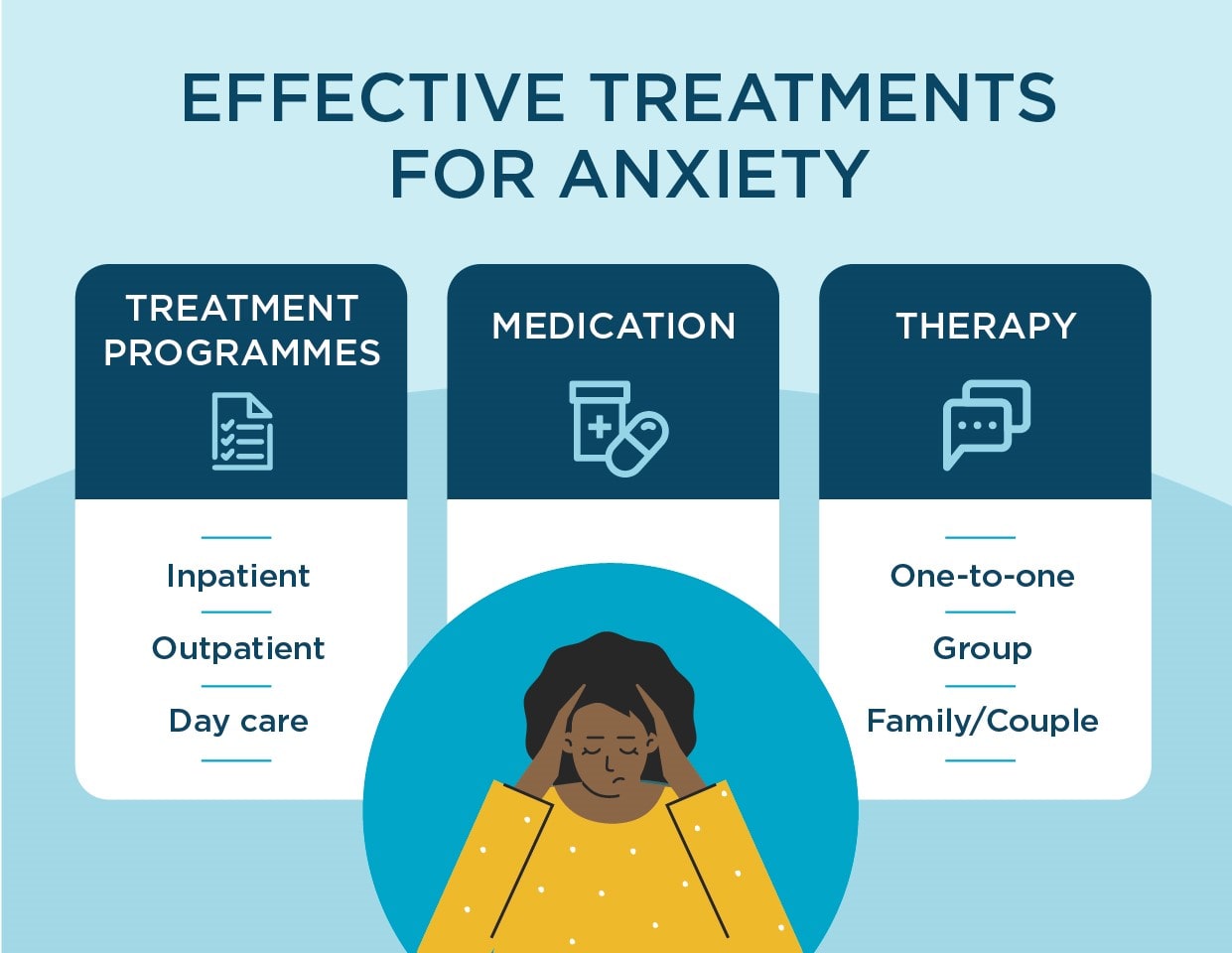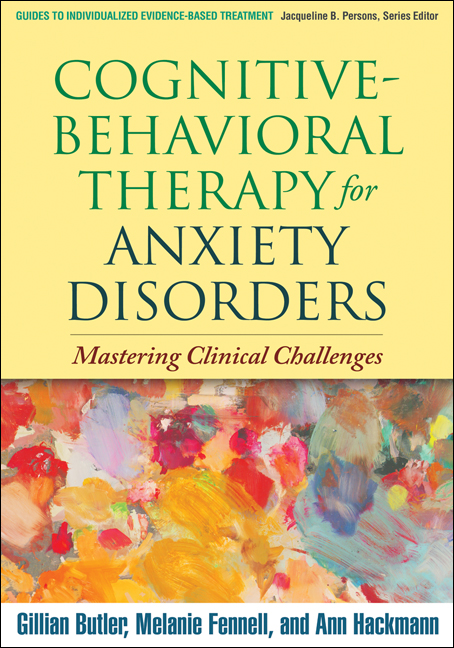Discovering Different Techniques in Coaching for Anxiousness Disorder for Enduring Modification
When taking on stress and anxiety problems, it's crucial to check out a variety of counseling methods. Each technique uses one-of-a-kind understandings and tools to help you manage your signs and symptoms effectively. You may discover that incorporating techniques can yield the very best results. Recognizing the nuances of these techniques is vital to fostering long lasting adjustment. What if the ideal combination could launch a brand-new level of psychological health for you?
Recognizing Anxiety Conditions: A Quick Review
Anxiousness conditions, which affect millions of individuals worldwide, can substantially influence life. You may experience frustrating feelings of worry or worry that appear irrepressible. These sensations can bring about physical symptoms like a racing heart, sweating, and even lightheadedness. Typical sorts of anxiety disorders include generalised stress and anxiety problem, panic attack, and social anxiety condition. Each has special signs, yet they all share a tendency to interrupt your routine and relationships.Understanding the root causes of your anxiousness is vital. It may originate from genetics, mind chemistry, or life experiences. Identifying your triggers can assist you handle your reactions much better. It is essential to keep in mind that you're not the only one in this battle. Many individuals face comparable challenges, and looking for aid is a strong action toward feeling much better. By learning about stress and anxiety conditions, you're currently on the path to understanding and handling your problem a lot more effectively.
Cognitive-Behavioral Therapy: Challenging Negative Idea Patterns
In Cognitive-Behavioral Treatment, you'll begin by identifying the adverse idea sets off that contribute to your anxiety. When you recognize these ideas, you'll service changing them with even more positive options. Together, you'll develop reliable coping strategies to assist handle your anxiousness in day-to-day situations.
Identifying Unfavorable Idea Triggers

Acknowledging the particular triggers behind your unfavorable thoughts can be necessary in taking care of anxiousness when you encounter minutes of distress. Beginning by taking notice of situations that prompt sensations of worry or fear. Is it a crowded room, a future due date, or a discussion with particular individuals? Write down these circumstances in a journal. This will help you identify patterns in your reasoning. Notification physical experiences that accompany your unfavorable ideas, like a racing heart or tightness in your chest. By pinpointing these triggers, you gain understanding right into what's sustaining your stress and anxiety. Comprehending these links is the very first step in challenging those thoughts and ultimately restoring control over your emotional responses.
Replacing Ideas With Positives
Testing negative thought patterns is a crucial action in transforming your frame of mind and decreasing anxiousness. You may often locate on your own entraped in cycles of insecurity or disastrous thinking. Rather than letting these thoughts dictate your sensations, practice replacing them with favorable affirmations or practical alternatives. When you believe, "I can not handle this," shift it to, "I can handle obstacles one action at a time." This simple modification can significantly influence your emotion. Regularly determining and responding to these negative thoughts assists develop a healthier internal dialogue. Bear in mind, it takes time and effort, yet regularly practicing this method can bring about lasting modification, equipping you to face anxiety with restored self-confidence and durability.
Building Coping Techniques Together
Changing unfavorable thoughts is just the start of taking care of anxiety effectively. To develop long lasting change, you require to develop coping strategies that empower you. Cognitive-Behavioral Therapy (CBT) helps you identify and test those purposeless thought patterns. Together, you and your therapist can discover exactly how these thoughts influence your sensations and behaviors.Start by establishing functional techniques, like journaling or mindfulness workouts, that enable you to face anxiety head-on. When you encounter your concerns progressively, you'll learn to react differently.

Mindfulness and Acceptance-Based Approaches: Cultivating Present-Moment Awareness
As you browse the complexities of stress and anxiety, incorporating mindfulness and acceptance-based strategies can significantly enhance your ability to grow present-moment understanding. By focusing on the here and currently, you'll find that you can observe your thoughts and feelings without judgment (Counseling services for anxiety). This technique aids you recognize your anxiousness without feeling overwhelmed by it.Engaging in mindfulness workouts, such as deep breathing, body scans, or assisted meditations, enables you to ground on your own in your existing experience. Acceptance-based techniques encourage you to embrace your feelings as opposed to fight against them. When you accept your sensations, they lose their power over you.Incorporating these techniques into your day-to-day routine can transform exactly how you react to stress and anxiety. You'll establish strength and discover to browse difficult scenarios with greater simplicity. Ultimately, cultivating present-moment understanding lays the foundation for long lasting change, empowering you to lead a much more fulfilling life
Exposure Treatment: Challenging Concerns Progressively
Exposure treatment aids you confront your anxieties in a progressive means, making it less frustrating. You'll find out methods to face anxiety-provoking situations action by action, while also building coping approaches to manage your responses. This method encourages you to take control and decrease stress and anxiety with time.
Gradual Exposure Techniques

When facing stress and anxiety, progressively facing your anxieties can be an check my reference effective method to reclaim control. This strategy, called steady exposure, involves gradually revealing yourself to the scenarios or things that trigger your anxiety. Beginning with less intimidating circumstances and progressively work your way as much as even more tough ones. If you're afraid of public talking, you might begin by talking in front of a mirror, after that advance to sharing thoughts with a buddy, and ultimately address a tiny team. Each action assists desensitize you to the concern, building your self-confidence gradually. Keep in mind, it's important to pace on your own and celebrate tiny success as you relocate via this process, enhancing your capability to handle anxiety efficiently.
Structure Coping Approaches
Structure efficient coping methods is crucial for managing anxiety, specifically as you challenge your worries slowly - Counseling services for anxiety. One effective approach is direct exposure therapy, where you begin by facing your fears in a regulated way. Start with much less daunting scenarios and slowly function your method up to more challenging circumstances. This progressive exposure helps desensitize you to anxiousness causes, making them less overwhelming.Incorporate leisure techniques, such as deep breathing or mindfulness, to calm your mind during direct exposure. Track your progress, commemorating tiny success along the way to boost your confidence. Bear in mind, it's alright to take your time; the goal isn't excellence yet constant renovation. By developing these strategies, you'll encourage on your own to navigate anxiety and accept life extra fully
Psychodynamic Therapy: Discovering Source of Stress And Anxiety
Psychodynamic treatment checks out the subconscious mind, disclosing the root triggers of your anxiousness. By examining your thoughts, sensations, and previous experiences, this strategy helps you uncover underlying problems and unsolved problems that might add to your current anxiousness. You'll function with a therapist to investigate youth experiences, relationships, and emotional patterns that form more information your feedbacks today.As you obtain insight right into these much deeper layers of your subconscious, you'll begin to recognize just how past occasions influence your present behavior. This understanding can result in catharsis, allowing you to process feelings you could have suppressed.Through the therapeutic relationship, you can likewise recognize defense reaction that might have established with time, supplying a more clear path to transform. Ultimately, psychodynamic treatment outfits you with the devices to address your anxiousness at its core, advertising enduring makeover in your psychological wellness.
Integrative and Holistic Approaches: Incorporating Strategies for Greater Efficacy
Incorporating numerous therapeutic techniques can improve your trip toward managing anxiety better. By integrating elements from cognitive-behavioral therapy, mindfulness practices, and all natural techniques, you can produce an individualized method that addresses your distinct requirements. You may utilize cognitive-behavioral techniques to challenge negative idea patterns while incorporating mindfulness workouts to ground yourself in the present moment.Additionally, discovering all natural techniques such as yoga or reflection can advertise leisure and lower anxiety signs and symptoms. This blend enables you to create greater self-awareness and resilience.Experimenting with these varied methods can aid you uncover what reverberates most with you. Keep in mind, it has to do with finding a harmony that functions, instead than sticking to a single approach. This integrative method not only provides prompt alleviation however additionally promotes lasting skills for managing anxiousness, equipping you to recover control over your life.
The Function of Assistance Solutions: Structure Durability With Link
While it could seem that managing anxiousness is a singular journey, having a solid support group can play a crucial function in your resilience. Bordering yourself with understanding good friends, family, or assistance teams develops a secure space where you can freely share your sensations and experiences. You advise on your own that you're not alone in this struggle.These connections supply motivation and can provide functional coping approaches that have functioned for others when you attach with others. It's also a possibility to get perspective; good friends can assist you see scenarios in different ways, reducing feelings of isolation.Moreover, emotional support fosters a feeling of belonging, which can substantially ease stress and more helpful hints anxiety signs. By leaning on your support group, you can develop resilience and deal with difficulties better. Keep in mind, connecting for assistance is an indicator of stamina, and it can make all the distinction in your trip towards handling anxiety.
Frequently Asked Questions
What Are the Typical Symptoms of Anxiety Disorders?
You could experience uneasyness, tiredness, problem concentrating, irritation, muscular tissue stress, and sleep disruptions. Physical signs and symptoms can include fast heartbeat, sweating, and trembling. Acknowledging these indicators early can assist you seek appropriate support and treatment.
For How Long Does Therapy Typically Last for Anxiousness Disorders?
Therapy for stress and anxiety problems typically lasts anywhere from a few weeks to numerous months. It really depends upon your individual demands, progress, and the strategies your specialist uses to help you handle your stress and anxiety effectively.
Can Drug Be Utilized Together With Therapy for Stress and anxiety?
Yes, medicine can most definitely be used alongside treatment for anxiety. Combining both approaches often boosts treatment effectiveness, aiding you take care of symptoms while exploring underlying issues via counseling (Counseling services for anxiety). Always consult your doctor for individualized advice
Are There Self-Help Methods for Handling Anxiousness?
Yes, there are a number of self-help approaches for taking care of stress and anxiety. You can exercise mindfulness, participate in regular exercise, keep a well balanced diet plan, develop a regular, and use deep breathing strategies to help in reducing anxiety signs successfully.
Exactly how Do I Know if I Need Professional Help for Anxiety?
